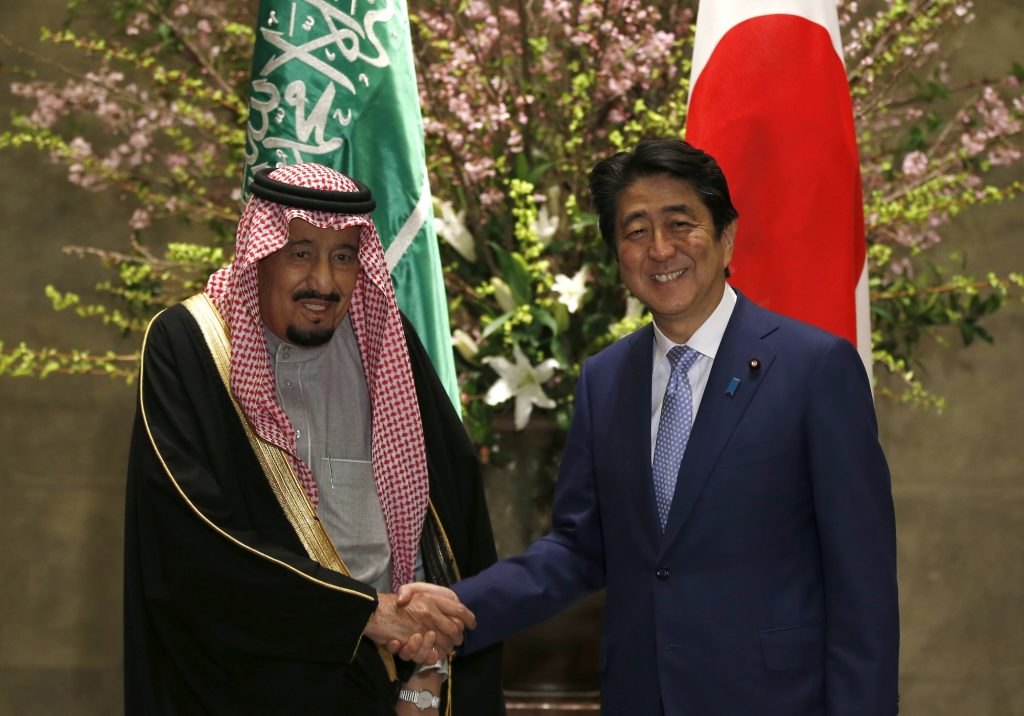
- ARAB NEWS
- 05 Jul 2025

It is very encouraging and important that Arab News starts a Japan edition in mid-October. The two countries have strong political and economic ties – none the least in terms of oil trade.
Japan receives 40 percent of its crude from KSA. The new publication will do a lot to help mutual understanding and bridge the cultural gap, which may not be as big as it at first seems.
I started my professional career in Japan and lived there for nine happy years from the mid-1980s to the early 1990s. First, I was a monbusho (Japanese ministry of education) scholar at the University of Tokyo reading international relations and economics.
I then worked for an up-and-coming parliamentarian, Yoshiro Mori, who later became the Japanese minister of trade and industry and even prime minister. I had the privilege of serving as his adviser when he was minister, which was a huge opportunity.
As a Swiss national, I came from a small economy and he gave me a vantage point to experience first-hand the inner workings of the world’s second-largest economy at the time. Then I was a banker for a few years.
My stay in Japan gave me the insights into academia, politics and the business world of this extraordinary country.
Since then my professional journey has taken me to Manila, London, the US and back to London, working as a banker, an industrialist, an oil woman and now running my own advisory firm.
Over the past two decades I have professionally focused on the Middle East particularly GCC countries among other geographies. For the last three years I have also had the honour of writing opinion columns for Arab News, which has brought me no end of joy.
For this reason, I would like to share some observations on commonalities and the compatibility of Japanese and Saudi societies and cultures.
In both countries personal relationships count and one must be mindful of how to handle them. Loyalty is not an abstract concept, but the guiding principle in any relationship. Relationships are not transactional.
There is a clear expectation that they are meant to outlast the ups and downs and vagaries of time and personal fortune. It literally takes a lifetime to build a reputation and very little to destroy it.
In both cultures it is not just individual achievement, but rather how that affects one’s environment. In Japan this is called the “WA” harmony of the group which supersedes personal gain.
In both countries mentoring is important. The elder, more experienced takes the younger under his/her wing and teaches them more than technical skills. It is not just about the result but the journey leading there.
I was privileged to work in former premier Mori’s office when he was a parliamentarian and a minister. Indeed, what I learned from him and my talented colleagues there was by far greater, more far reaching and more important than any university course could have taught me.
For I learned that is not just intellect and book knowledge that matters, but also how one interacts with one’s interlocutors. It is not just about skills and intellect; it is also about heart and instinct.
I have seen similar traits in Saudi society where mentors take the time to teach mentees. They create a bond that can last over decades. Those relationships are again not transactional but designed to stand the test of time.
Both cultures also value politeness. In this time of rude exchanges in (social) media and disintegrating political discourse, it is delightful to see people of all age groups weighing their words carefully and putting a premium on civilized manners.
Both cultures value the elderly and show respect for their experience. But the young! They are equally delightful in both countries. KSA is a young nation and Japan has one of the world’s fastest-ageing populations.
Still the young are equally enthusiastic and take to fashion trends, new technologies and media like no one else. They start trends which many other countries follow. You only need to walk the streets of Tokyo to see just how fashion forward and adventurous the young are.
Japan’s big gaming technology firms such as Nintendo have developed many trends which spread across the globe. To mind come Pokémon Go and other AR (augmented reality) games. Youth in the GCC has embraced and adopted these trends with verve and enthusiasm. The Kingdom and other GCC economies are very au fait with all things AI (artificial intelligence). The UAE even has a minister for AI.
And then there are the women: All too often they are portrayed as oppressed. In my experience many of them are well-educated and articulate in KSA as well as in Japan. In both countries the barriers are being removed one by one.
The current Japanese Prime Minister Shinzo Abe understands that the economic welfare of his country depends on female participation in the economy. This is the only countermeasure he has to a dwindling workforce in an ageing society.
In the Kingdom too, life has become a lot freer for women: They can drive, they will be able to travel without the consent of a guardian and they are actively encouraged to take senior positions in government and business. Saudi Aramco was a pioneer in hiring and promoting women. I would argue that a golden age for women has dawned both in KSA and Japan.
There are many differences between the two countries and societies for sure. It may be hard to see behind opaque social structures and customs. However, when one digs deeper there are many similarities too.